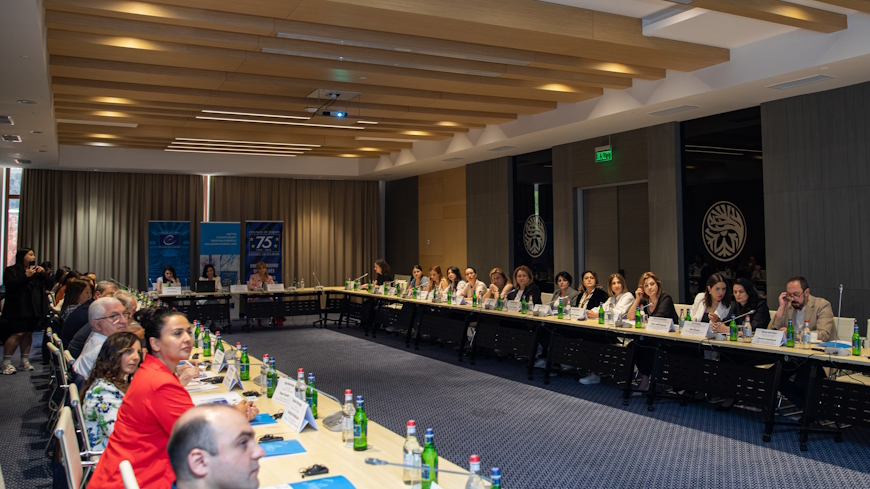Ethics committees play a pivotal role in protecting patients' rights, providing equitable care, and fostering an environment where compassion and integrity prevail is essential to build public trust towards healthcare systems. They serve as the moral compass of medical institutions, ensuring that patient care is administered with utmost respect for human dignity and rights.
In a landmark effort to bolster ethical standards in healthcare, the Council of Europe has partnered with the Yerevan State Medical University and Ethics Committee for healthcare professionals to conduct a comprehensive capacity-building program on the functioning of the ethics committees for clinical specialists from university clinics. This initiative is designed to equip healthcare professionals with the latest skills and knowledge necessary to navigate complex ethical dilemmas in clinical practice.
The event organized on 4-5 July for around 45 medical practitioners aimed at discussing ethical rules for healthcare professionals and the functioning of the Ethics Committee for Healthcare Professionals in Armenia based on national and European standards in the fields of ethical rules and ethics committees, as well as on public debates in the field of healthcare.
The opening remarks were delivered by Laurence Lwoff, Head of Human Rights and Biomedicine Division of the Council of Europe, Izabel Abgaryan, Chair of the Ethics Committee for Healthcare Professionals and Mary Ter- Stepanyan, Head of the National Scientific Research Centre of Health Programs of YSMU. Ms Laurence Lwoff emphasized the significance of this collaboration, stating, “In an era where medical advancements and ethical dilemmas often intersect, the importance of steadfast ethical guidelines cannot be overstated”.
As a part of a larger effort to promote ethical practices in healthcare in Armenia, the Council of Europe, the Ethics Committee for healthcare professionals and the Yerevan State Medical University are setting new benchmarks in medical ethics, fostering an environment where medical practice and ethical integrity coexist harmoniously.
The Ethics Committee for Healthcare Professionals (Ethics Committee) is an independent body which reviews cases of possible violations of professional ethical rules by healthcare professionals and consists of seven members, including healthcare professionals, lawyers, and psychologists who work on a voluntary basis. The cases under the review of the Ethics Committee fall under the framework of the relationships of healthcare professionals vis-à-vis patients, other healthcare professionals, third parties and public health in general. Within a year of the functioning, the Ethics Committee for healthcare professionals examined six cases of alleged violations of the ethical rules․
The capacity-building training was organised by the Council of Europe Project on “Protection of Human Rights in Biomedicine II” implemented within the Council of Europe Action Plan for Armenia 2023-2026.








